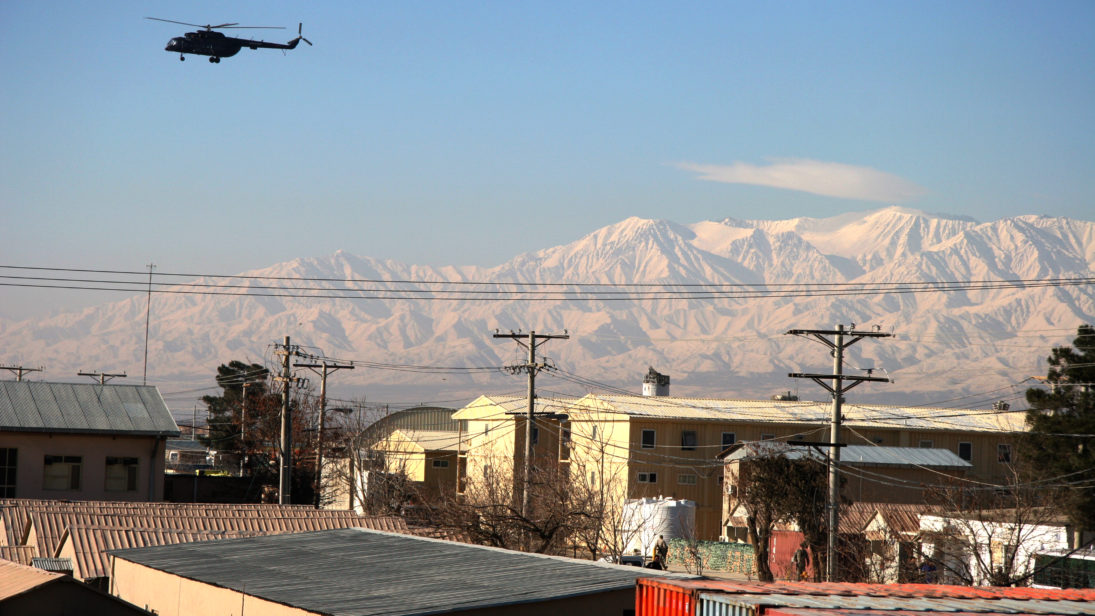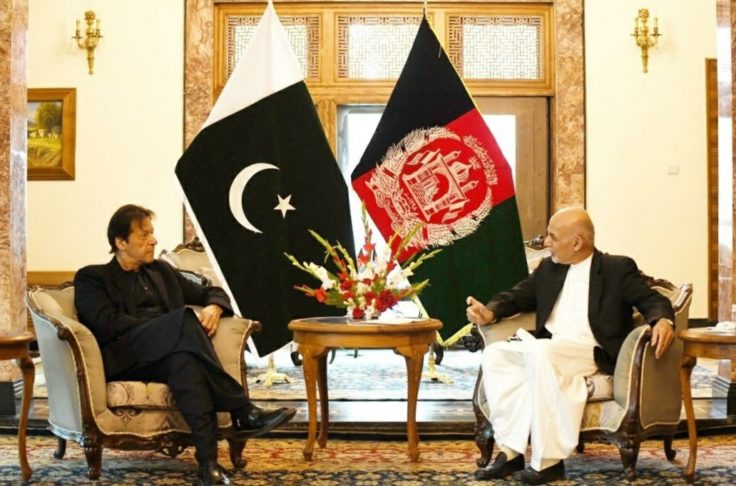
Under the guise of chaos and instability, Daesh, the notorious terrorist organization, has been able to raise and maintain a branch in Afghanistan – the Islamic State Khorasan Province (ISKP). With transnational ambitions, the extremist organization not only keeps a small presence in Pakistan but also provides a platform and refuge to like-minded outlawed individuals and groups. Daesh’s unrelenting ability to operate across boundaries and use barbaric tactics against opposers pushes the group into a strategic rivalry with the Taliban and the Afghan government. The tussle between the latter two and their inability to resolve their differences through the ongoing peace process has helped ISKP reassemble and expand. While the Taliban blame the government forces for rescuing ISKP fighters, the Afghan government accuses Pakistan of giving shelter and support to the Taliban fighters. The blame game has caused a major trust deficit between Kabul, Islamabad, and the Taliban, which in turn impacts the peace process and created hurdles to lead a joint endeavor against ISKP. To better advance reconciliation, Afghanistan and Pakistan must find avenues to collectively address the threat posed by ISKP—the main spoiler to the peace process.
Need for a Joint Endeavour
Reports suggest that ISKP and Al-Qaeda have been coordinating with Central Asia-based terror groups to establish a caliphate in Afghanistan’s northeast. ISKP also embraced many outlawed extremist groups from Pakistan including factions from Tehreek-e-Taliban Pakistan (TTP). The growing strength of the group enhances its ability to both execute attacks inside Afghanistan and across its borders. Considering the ongoing peace negotiations threaten ISKP’s survival, it plans to spoil the peace process.
While the continuing unclaimed targeted killings of Afghan civil society members have intensified fighting between warring parties in Afghanistan, and the resulting blame game has impacted the intra-Afghan talks, no one has benefited more from this chaos than ISKP. The deterioration of Afghanistan-Pakistan ties as a result of the latter’s firing of mortar shells on reported terrorist hideouts inside Afghanistan has assisted ISKP’s agenda to disturb peace efforts. Considering Pakistan’s central role in bringing the Taliban to the negotiation table, it is important to smooth ties between Kabul and Islamabad to conclude the process successfully. Thus, the establishment of a joint mechanism with equal input from Pakistan, the Afghan government, and the Taliban, is required to put an end to the jeopardizing anti-peace efforts of the notorious terrorist organization.
The warring Afghan factions and Pakistan must realize that the sooner they manage to build trust and collaboration against the ISKP-led terror threat in Afghanistan, the earlier foreign troops would undertake a withdrawal.
Considering the complete withdrawal of U.S. troops from Afghanistan, expected in May 2021, is subjected to anti-terror assurances, a joint mechanism should be immediately established to counter the threat of ISKP. The current rise in terror activity in Afghanistan and the lack of a common communication platform between the Afghan government and the Taliban against ISKP might force the United States to reassess its decision to undertake a complete drawdown.
Although the presence of foreign troops helps enhance Afghan government forces’ ability to counter terrorists, it justifies extremist groups and individuals in the region to revert to and maintain an armed struggle. This, in turn, impacts the state’s ability to maintain law and order. Ergo, the warring Afghan factions and Pakistan must realize that the sooner they manage to build trust and collaboration against the ISKP-led terror threat in Afghanistan, the earlier foreign troops would undertake a withdrawal.
Challenges
Underestimating the strength of ISKP remains a key hurdle. In the past, external powers and the Afghan government have made completely contradictory assessments of ISKP’s strength and size. When Russia cautioned the U.S. and Afghan officials against the presence of at least ten thousand ISKP terrorists in Afghanistan, Afghan and U.S. generals contended that the numbers were not more than three thousand. However, the presence of a larger number of ISKP fighters was reported later. The Afghan government’s inability to handle the ISKP threat single-handedly has not only halted prospects for regional collaboration but also helped the group gain strength and momentum.

Kabul’s reluctance in establishing an anti-ISKP joint endeavor has induced an environment of suspicion and mistrust. The Taliban has blamed Kabul for collaborating with ISKP against its organization. Given the Taliban’s ongoing tussle against both Afghan government forces and ISKP, the interests of the latter two have naturally converged against the Taliban. Considering the ISKP’s rivalry with the Taliban, its pursuit to establish a caliphate in South and Central Asia, and its efforts to delegitimize the Afghan government, the group presents a joint threat to both the Kabul administration and the Taliban. The Taliban may be willing to cooperate with the Afghan government to eliminate ISKP if Kabul commits to defeating the terrorist group.
On the other hand, Kabul remains critical of Pakistan-Taliban ties. Despite Islamabad’s serious efforts to pursue peace in Afghanistan, Afghan authorities blame Pakistan for encouraging the Taliban-led violence against Afghan forces. Failure to address widening mistrust between the stakeholders could further strengthen ISKP’s capabilities.
Prospects for Collaboration
To build confidence in the ongoing peace process, Kabul, Islamabad, and the Taliban should collaborate against ISKP. Pakistan’s role remains crucial in forging and implementing any such collaborative mechanism, as the country has successfully targeted extremist militancy within its own borders in the past. Additionally, both the Pakistani and Afghan governments already possess instruments that provide a framework for such cooperation.
In one of the postulates of the “Shared Vision” document issued by Pakistan and Afghanistan during Prime Minister Imran Khan’s September 2020 visit to Kabul, both countries pledged that they should work together to identify and tackle enemies of peace. The document includes an implementation mechanism utilizing both countries’ intelligence services to cooperate against those undermining the peace process.
In order to build trust and effectively implement existing peace-building deals, both the Afghan government and Pakistan should include the Taliban in bilateral agreements that specifically address the ISKP threat.
Additionally, both Kabul and Islamabad have been working on the Afghanistan-Pakistan Action Plan for Peace and Solidarity (APAPPS) to strengthen bilateral military-to-military and intelligence cooperation amongst other objectives. However, despite such instruments being in place, both governments have not yet efficiently cooperated against groups threatening the peace process. One of the key reasons for this appears to be Kabul’s suspicions of Islamabad’s ties with the Taliban while it attempts to negotiate a comprehensive ceasefire with the latter. In order to build trust and effectively implement existing peace-building deals, both the Afghan government and Pakistan should include the Taliban in bilateral agreements that specifically address the ISKP threat. Although it seems unlikely that the Afghan government would be willing to recognize the Taliban as an equal stakeholder in any such settlement, the Taliban’s fighting experience on the battlefield and their intelligence-sharing abilities could be useful in identifying and eliminating ISKP terrorists. Moreover, collaborating against ISKP would boost confidence between the Afghan government and the Taliban, and pave way for a comprehensive political settlement. Given the indigenous nature of an Afghan government-Taliban military collaboration against ISKP, it is more likely to succeed than similar bilateral mechanisms of the past.
Kabul should trust Islamabad in forming such a mechanism because the incumbent Pakistani government has brought a positive shift in its policies towards Afghanistan whereby it welcomes all Afghan factions regardless of any ethnic or religious alignments as is manifested in Pakistan’s recent engagements with Afghan leadership from different ethnicities and backgrounds; including with Abdullah Abdullah, Gulbuddin Hekmatyar, Karim Khalili, Mohammad Mohaqiq, and the Taliban. Additionally, the Afghan President Ashraf Ghani is expected to visit Pakistan in the coming months to discuss additional avenues for bilateral cooperation.
The new administration in Washington may also play its part to convince the Afghan government to forge a collaboration with Pakistan and the Taliban against ISKP; this would quash suspicions of the U.S. turning a blind eye to ISKP in Afghanistan, remove one of the major terror threats to peace in Afghanistan, and pave the way to bring U.S. forces home. Failure to counter ISKP would not only deepen the gulf between Kabul, Islamabad, and the Taliban but would also allow ISKP to establish a caliphate in Afghanistan—in partnership with Al Qaeda and other terrorist groups—and minimize chances of much-needed regional stability.
***
Image 1: Adam Yates via Flickr


